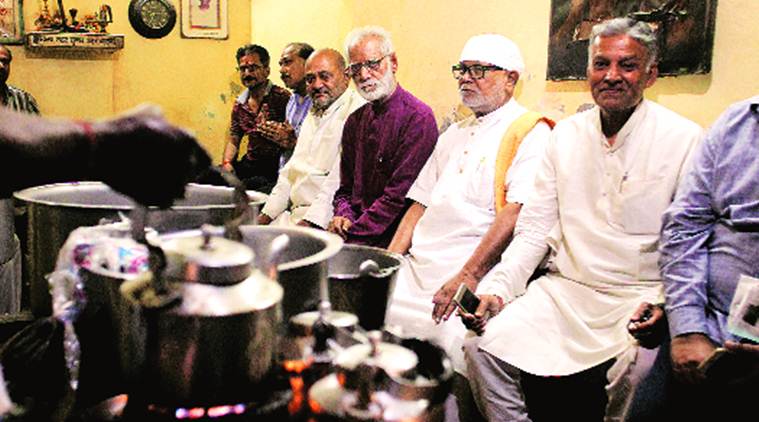Written by Dipti Nagpaul |Updated: February 21, 2019 8:47:25 am
One of Varanasi’s own, Namvar Singh was a mentor to many budding writers in the city
Winner of the Sahitya Akademi Award and author of Kavita Ke Naye Pratiman, a seminal book of critical writing on poetry, Namwar Singh was known for his communist views, reinventing Hindi literature through his contemporary writing and his literary critique.

Prakhar, mukhar, shikhar (sharp, articulate, intellectual) — this is how Hindi writer Gaya Singh remembers Namvar Singh. And most people from across literary circles would agree. The noted author, who died on Tuesday of prolonged illness at 92, for decades remained a prominent figure in Hindi literature. Winner of the Sahitya Akademi Award and author of Kavita Ke Naye Pratiman, a seminal book of critical writing on poetry, Singh was known for his communist views, reinventing Hindi literature through his contemporary writing and his literary critique.
Varanasi-based Gaya Singh remembers him as a mentor to several generations of literary names that emerged from the city. “Even as Namvar Singh rose to fame, he would buy, read and support the works of young writers. He would critique their writings and also guide them. It’s a role he played as much off work as he did as a professor at universities like the Banaras Hindu University and later Jawaharlal NehruUniversity,” says Gaya.
Among the many noted writers that Namvar mentored before he moved to Delhi from his hometown Varanasi, was also his younger brother Kashinath Singh. The 82-year-old often reminisces his elder brother’s relationship with the city, its vibrant tea stalls and the culture of political and intellectual debates that shaped his own writing. “These tea stalls once doubled up as addas for poets, writers and artists. For instance, the Kedar Tea Stall was frequented by some of the biggest names in Hindi literature in the ’60s, such as Kedarnath Singh, Vijay Mohan (Sethi), Vidyasagar Nautiyal and Vishwanath Tripathi Dehlavi. These gatherings would be presided over by bhai saab, along with Trilochan. The gatherings would often conclude with a trip to Tulsi Pustakalay, the book shop that stood around the corner,” said Kashinath in an earlier interview to The Indian Express.
While he mentored many writers, Namvar is also remembered for not sparing anyone, be it a dear friend or family, when he critiqued their works. Gaya remembers that once, late author Bachchan Singh was to be felicitated at an event that Namvar was also invited to. “The two were related — Namvar Singh’s daughter was married to Bachchan Singh’s son. However, the former didn’t mince his words when he told the organisers that Bachchan Singh’s works are not significant enough for the honour,” says Gaya.
His critical commentary was sharp but never bereft of humour and wit. Elaborating, Gaya says, “Writers would consider it an honour if Namvar Singh critiqued and approved of their work. But those he didn’t consider worthy of mentioning would hope for a negative review from him in the hope that the wit with which Namvar Singh critiques them will alone be enough to immortalise them in the annals of Hindi literature.”






















No hay comentarios:
Publicar un comentario